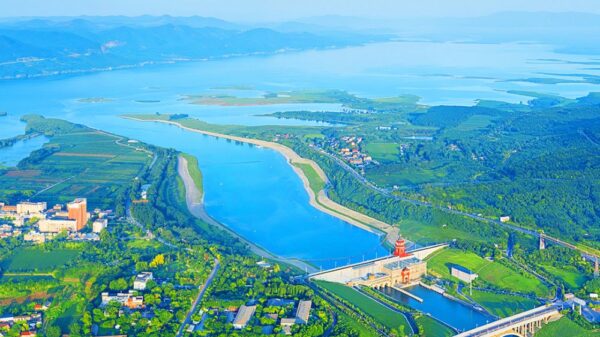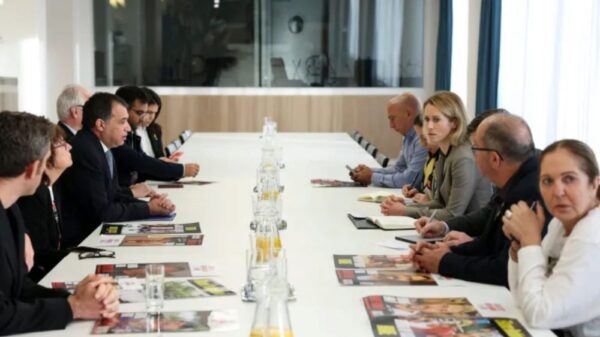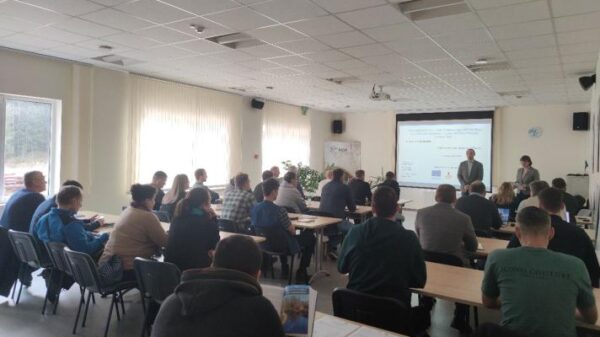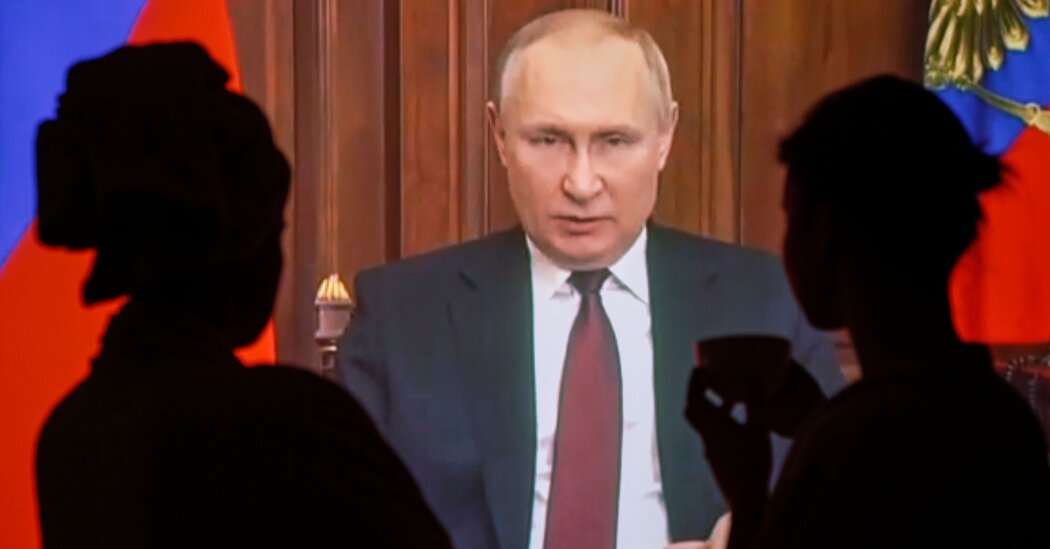Journalists writing on international affairs in the 1920s and 1930s referred to the era as “postwar.” They saw events through the prism of the Great War that had devastated Europe just a few years earlier. Historians writing today refer to these same years as the “interwar” period, for the simple reason that they analyze what happened during those years as part of the lead-up to the even more destructive World War II. If only those journalists writing in 1930s Europe had the clarity of hindsight.
We should all have that clarity today. Russia’s military aggression in Ukraine is one of those moments that impels us to reinterpret our own era: what we called the 30-year peace that followed the Cold War (tending to forget, consciously or unconsciously, the wars in the former Yugoslavia) has now ended. Future historians will look at these last decades, by and large, much like they look at the interwar period, as an opportunity squandered.
The sooner we all admit it, the better we can prepare for what comes next. Unfortunately, a kind of self-serving denialism pervades Western capitals and prevents us from seeing the obvious. Passionate pleas to defend post-Cold War European order have no meaning because this era is over.
In the wake of Russia’s occupation of Crimea in 2014, Angela Merkel, then-chancellor of Germany, talked to President Vladimir Putin of Russia and reported to President Barack Obama that, in her view, Mr. Putin had lost touch with reality. He was, she said, living in “another world.” Today, we are all living in it. In this world, to quote Thucydides, “the strong do what they can and the weak suffer what they must.”
How did we get here? First, we must understand that this is not Russia’s war. It is Mr. Putin’s. He comes from a particular generation of Russian security officials that never managed to reconcile themselves with Moscow’s Cold War defeat. In front of their eyes, the Soviet Union vanished from the map without military loss or foreign invasion. For them, the current assault on Ukraine is a logical and necessary inflection point. The imperial table can once again be reset. These people are not interested in writing the future, they want to rewrite the past.
While watching Russian missiles attacking Kyiv in a mood of powerless outrage, I suddenly realized that many Russians must have felt the same way when NATO was bombing Belgrade two decades ago. Mr. Putin’s invasion may be more about revenge than grand strategy.
There’s a distinction between revisionism and revanchism. Revisionists wish to build an international order of their liking. Revanchists are driven by the idea of payback. They do not dream of changing the world but of changing places with the victors of the last war.
If Mr. Putin is succeeding today, the West can blame only itself. While Western public opinion was hypnotizing itself with the idea that Russia is in steep decline — “a gas station with nukes,” some liked to call it — the Russian president began to realize his strategy. For years, Mr. Putin has been consolidating his sphere of influence over the former Soviet Union, starting with his war on Georgia in 2008 and through his annexation of Crimea in 2014. More recently, he has tightened his grip on Belarus and Central Asia. Now he has undertaken the next, dramatic step.
President Biden said on Thursday that in response to the invasion of Ukraine he intends to make Mr. Putin “a pariah on the international stage.” That would be a fitting punishment for this violation of international law, but things may not work out that way. There is a real danger that instead it’s the West that could find itself more isolated.
Over the last two months, the Moscow-Beijing alliance has moved from hypothesis to reality, thanks to the shared goal of challenging American dominance. While Chinese elites are hardly excited about Russia’s reckless invasion of Ukraine (the Chinese hold dear their commitment to nonviolation of state sovereignty), there is no doubt they will stay on Moscow’s side. Look at how Beijing refused to officially describe Mr. Putin’s war as an invasion. President Xi Jinping may be the biggest beneficiary of the current crisis: America not only looks weak, it also now finds itself bogged down in Europe and unable to focus on Asia.
Many countries see the conflict between Russia and the West as one between old imperialists that hardly affects them. Of greater and more immediate concern is the way that sanctions imposed by the West will drive up energy and food prices. The West can only win over skeptics of its efforts to combat Mr. Putin if it succeeds in showing those outside of Europe that what is at stake in Kyiv is not the fate of a pro-Western regime but the sovereignty of a newly born post-imperial state. Some already understand that idea: Kenya’s ambassador to the United Nations captured what is happening in Ukraine when he said, “the situation echoes our history. Kenya and almost every African country was birthed by the ending of the empire.”
What does the end of peace mean to Europe? The consequences will be dire. War in Ukraine has the frightening potential to heat up frozen conflicts on the continent’s periphery, including elsewhere in the post-Soviet space and the Western Balkans. The leaders of Republika Srpska may read a victory by Mr. Putin in Ukraine as a signal to dismantle Bosnia. Russia-friendly leaders within the European Union, too, will feel emboldened by Mr. Putin’s victory. The invasion of Ukraine has united Europe, but it will also hurt its self-confidence.
But more fundamentally, the events of the past week will necessitate a radical rethinking of the European project. For the last 30 years, Europeans have convinced themselves that military strength was not worth the cost, and that American military pre-eminence was enough to dissuade other countries from pursuing war. Spending on defense fell. What mattered, the received wisdom intoned, was economic power and soft power.
Now we know that sanctions can’t stop tanks. Europe’s cherished conviction that economic interdependence is the best guarantee for peace has turned out to be wrong. Europeans made a mistake by universalizing their post-World War II experience to countries like Russia. Capitalism is not enough to temper authoritarianism. Trade with dictators does not make your country more secure and keeping the money of corrupt leaders in your banks does not civilize them; it corrupts you. And Europe’s embrace of Russian hydrocarbons only made the continent more insecure and vulnerable.
The most destabilizing effect of Russia’s invasion could be that many around the world start to agree with Ukraine’s president, Volodymyr Zelensky. At the Munich Security Forum this month, he stated that Kyiv had made a mistake abandoning the nuclear weapons it inherited from the Soviet Union. The United States’ unwillingness to defend a friendly country like Ukraine can make at least some American allies believe that nuclear weapons are the only way to guarantee their sovereignty. It’s not hard to imagine China’s neighbors also thinking this way. The fact that a majority of South Koreans now favor their country obtaining nuclear weapons suggests that Mr. Putin’s moves in Ukraine put at risk the world’s nuclear nonproliferation regime.
In 1993, the great German poet and essayist Hans Magnus Enzensberger predicted that the Cold War would be followed by an age of chaos, violence and conflict. Reflecting on what he observed in Yugoslavia and the urban riots in the United States, he saw a world defined by an “inability to distinguish between destruction and self-destruction.” In this world, “there is no longer any need to legitimize your actions. Violence has freed itself from ideology.”
Mr. Enzensberger was right. He was just too early.
Ivan Krastev is the chairman of the Center for Liberal Strategies, a permanent fellow at the Institute for Human Sciences in Vienna and the author of “Is It Tomorrow Yet? Paradoxes of the Pandemic.”
The Times is committed to publishing a diversity of letters to the editor. We’d like to hear what you think about this or any of our articles. Here are some tips. And here’s our email: letters@nytimes.com.
Follow The New York Times Opinion section on Facebook, Twitter (@NYTopinion) and Instagram.




























